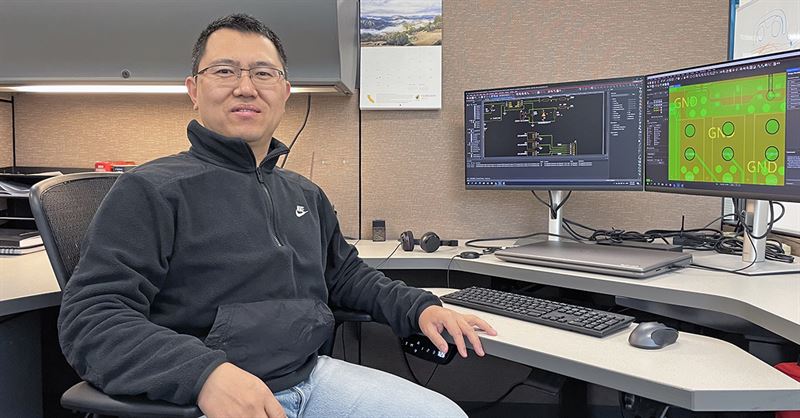He strives to improve surgeries of the future
You could almost say that innovation is running in Kevin Zhang’s veins. The Chinese-born American electronics engineer, who joined Getinge’s Cardiac Surgery Research Center in California a few months ago, has filed close to 30 patents in previous roles – and now he is passionate about improving tomorrow’s surgeries.

“New ideas have been popping up in my head since I was a junior engineer. Four months into my career at Getinge, I feel that inspiring research keeps them coming. I love the challenge to apply my creativity on a new field with new applications,” Kevin says.
Kevin joined Getinge from an electronics giant, developing and producing display devices in sizes from smart watches to large TV screens. As Senior Principal Engineer at Getinge’s US Research Center in Silicon Valley, California, he is currently turning focus to innovations for reducing risks associated with complicated surgeries.
“My father had a heart attack six years ago. It was a scary experience, but he was saved by a minimum invasive surgery, resulting in very little pain and leaving almost invisible scars. I hope that our research can find new ways to help people recover from surgery as painless as possible,” Kevin explains.
He continues:
“Future-proofing technologies already on the market is an important area for us. Making current tools smarter and easier to use can facilitate complex surgeries. More flexible and efficient procedures will help to reduce operating times, which improves productivity in the operating room (OR).”
As a passionate electronics engineer, Kevin is confident that automation and Artificial Intelligence (AI) will continue to have a major influence on tomorrow’s healthcare.
“AI and machine learning can be used to help surgeons, and all data collected from the OR will be used both for improving surgeries and making training of junior surgeons more efficient,” he says. “There are different levels of automation. With the right level of connectivity, for example, surgeons can perform a procedure remotely. Thanks to advanced vision technology, smart sensors and 5G transmission of data, we could provide feedback that gives them a fingertip ‘feeling’ of the patient although they are not present in the OR.”
The inevitable follow-up question is of course how far Kevin thinks that automation of surgeries can go in the long run.
“I am convinced that computers eventually can be trained to perform entire surgeries in some areas, initially with surgeons closely monitoring the procedure. Of course, there will be difficulties along the way, such as enabling systems to handle unexpected complications. But even if this is a vision of the future, not something that will happen tomorrow, it is one of those exciting perspectives that keep us researchers going,” Kevin concludes.
Find out more about digitalizing healthcare >>
Find your career at Getinge >>
Contact:
Anna Appelqvist
Tel.: +46 (0)10-335 5906
E-mail: anna.appelqvist@getinge.com
About Getinge
With a firm belief that every person and community should have access to the best possible care, Getinge provides hospitals and life science institutions with products and solutions that aim to improve clinical results and optimize workflows. The offering includes products and solutions for intensive care, cardiovascular procedures, operating rooms, sterile reprocessing and life science. Getinge employs over 10,000 people worldwide and the products are sold in more than 135 countries.
Tags:


